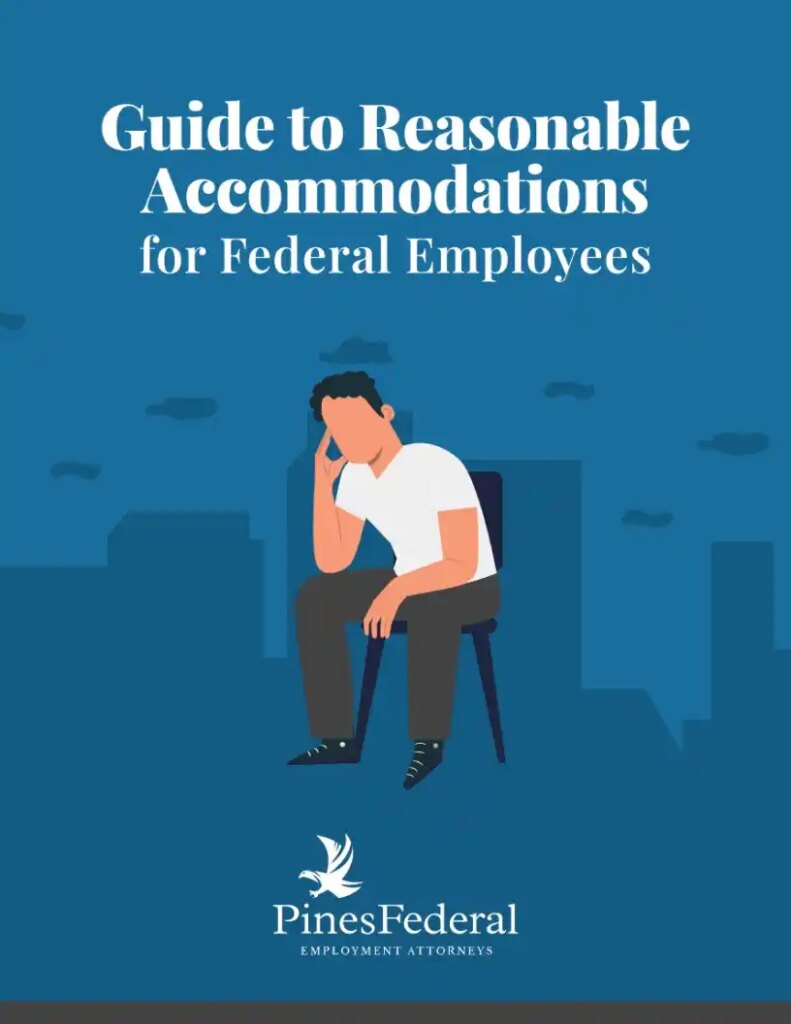
The Centers for Disease Control and Prevention (CDC) have recently found that 6.2% of American adults between 18-64 years of age suffer from low-functioning immune systems.
Being immunocompromised is often a serious situation, as it can make even relatively routine diseases like the common cold potentially life-threatening. Many immunocompromised individuals were strongly reminded of this stark reality during the recent COVID-19 Pandemic.
So if you’re a federal employee who struggles with being immunocompromised on a daily basis, it’s natural to wonder whether you can seek relief in the federal workplace through any kind of reasonable accommodations.
The good news is that most immunocompromised individuals can. That said, it isn’t always a straightforward process. We’ll explore the procedure and possibilities surrounding reasonable accommodations for immunocompromised federal employees in this article.
One thing you’ll discover about reasonable accommodations is that they’re highly fact-specific.
So if you have any questions about how the laws apply to your situation, seek out our outstanding team of reasonable accommodations attorneys. You can get in touch by calling us at (800) 801-0598 or by completing our online contact form.


“I was so pleased working with Pines Federal. I had peace of mind knowing I would not have to deal with the federal agency and all was taken care of by Pines. They are professional and responsive. I was very happy with the outcome of my case. Hiring Pines was the best decision I made.”
Is Being Immunocompromised a Disability Under the ADA?
Potential clients often ask us, Is being immunocompromised a disability? The short answer is that it depends. Being immunocompromised is usually a symptom of many other conditions.
A few examples include:
- Lupus,
- Rheumatoid arthritis,
- Type 1 diabetes,
- HIV/AIDS,
- Cancer, or
- Multiple sclerosis.
One legal standard applies to all of these conditions, as well as a low-functioning immune system that isn’t associated with a disease.
The controlling law for federal reasonable accommodations is the Americans with Disabilities Act (ADA). And according to the ADA, a disability is “a physical or mental impairment that substantially limits one or more major life activities” of an individual.
What is a major life activity? Simple—it is almost anything.
US law defines major life activities to include:
- Performing manual tasks,
- Seeking,
- Hearing,
- Eating,
- Standing,
- Bending,
- Communicating, and
- Working.
You also have a disability under the ADA if you have a prior record of something that affects a major life activity or if other people regard you as having that kind of impairment.
Therefore, the critical question for you is this: Does my compromised immune system affect any major life activities? If so, then you have a disability, even if your low-functioning immune system is not related to a recognized condition like Type 1 diabetes.
[DOWNLOAD] Reasonable Accommodations for Federal Employees

Are There Reasonable Accommodations for Immunocompromised Federal Employees?
Absolutely. A wide range of possible accommodations exist. However, reasonable accommodation is not a one-size-fits-all kind of solution. Instead, the possible accommodations depend on your job duties, limitations, and other personal circumstances.
Consider these examples:
- Remote work. Allowing you to work from home full-time or on specific days could reduce your exposure to potential health risks.
- Flexible scheduling. Enabling you to work during times when fewer employees are present can also lower your chances of infection.
- Private workspaces. Another possible solution is providing a private office or a workspace for you that keeps you away from high-traffic areas.
You could also potentially receive enhanced Personal Protective Equipment, improved ventilation, and other kinds of office sanitation measures, like hand sanitizers.
How Do I Get Reasonable Accommodation for My Compromised Immune System?
Fortunately, the process for requesting and obtaining reasonable accommodations is generally the same for every kind of health condition.
Nonetheless, it is rarely a simple process. Moreover, submitting a successful RA request requires the involvement of several different people. Let’s review these in detail.
- Prepare and submit your medical documentation. Begin by obtaining documentation from your healthcare provider detailing your immunocompromised status. This documentation should confirm your medical condition, describe how the condition affects your ability to perform certain tasks or functions, and offer recommendations for reasonable accommodations.
- Make a formal request. Although a verbal request can initiate the process, it’s advisable to submit a formal written request to your HR department or immediate supervisor. This request should detail your condition, how this condition affects your job performance, and the specific accommodations you’re seeking.
- Engage in the interactive process. After you submit your request, your employer should engage in a dialogue with you. This process is to identify what accommodations are feasible and will best support your needs without causing undue hardship to the employer.
If you take these steps, your employer should respond positively. However, federal agencies don’t always follow the law. And if your request is rejected after you take these steps, you should contact a federal employment lawyer immediately.
We’re Standing by to Defend Your Right to Reasonable Accommodation
Now that you know there are reasonable accommodations for immunocompromised federal employees, you’re ready to dive into the depths of federal reasonable accommodation law. However, you do not have to be alone in your legal journey.
At Pines Federal, we understand the unique challenges you face and are zealous about ensuring your rights receive legal protection. Don’t grapple with workplace dilemmas on your own. Instead, let our seasoned legal professionals take up your cause and help you obtain the reasonable accommodations you need.
Connect with Pines Federal today, and let us stand by your side so that we can advocate for your health, welfare, and professional success. Call us at (800) 801-0598 or reach us online today to set up a consultation.